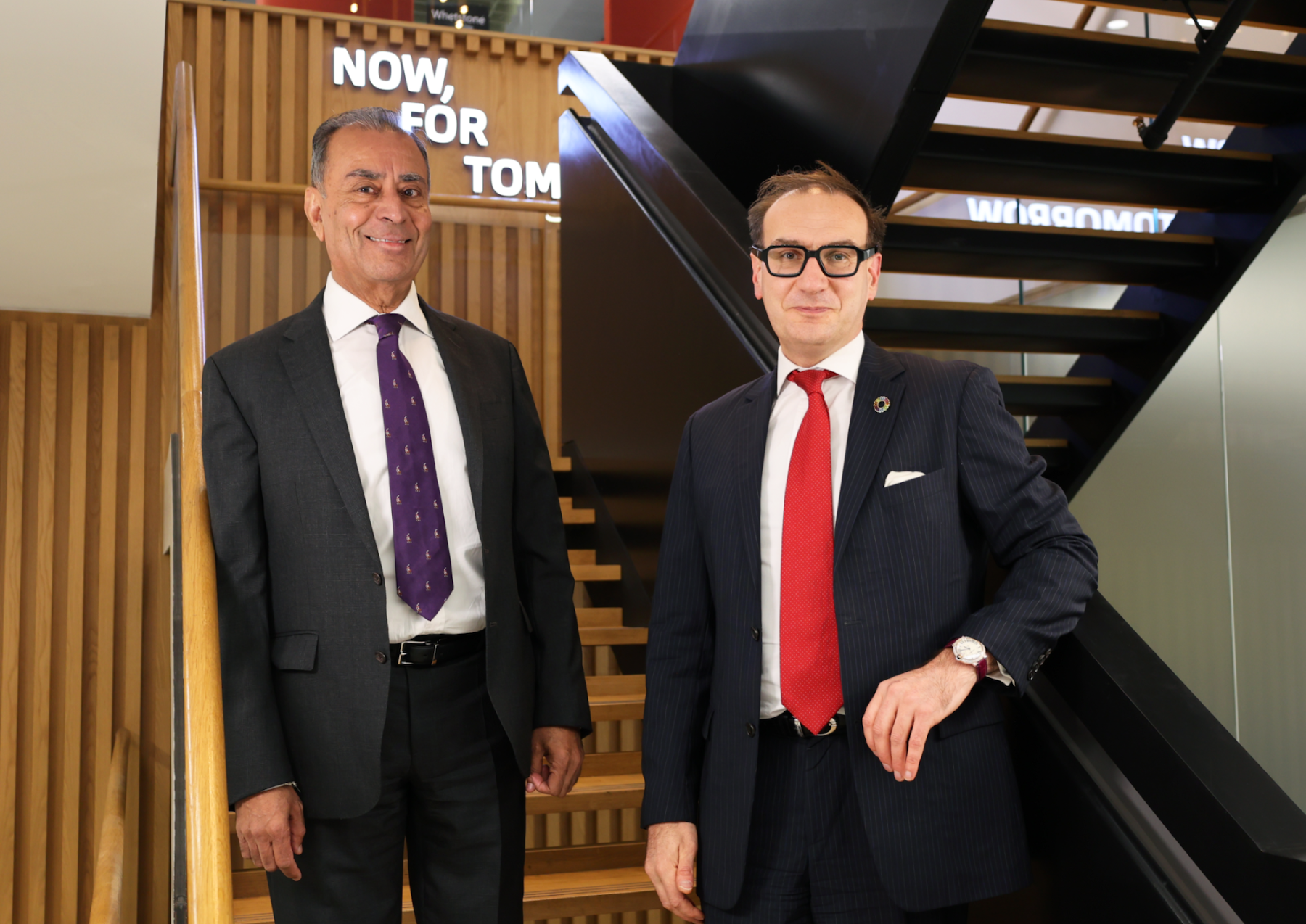MHA pledges net zero by 2030 in new sustainability report

Rakesh Shaunak and Mark Lumsdon-Taylor
Accountancy and business advisory firm MHA, which has offices in Aberdeen and Edinburgh, has outlined its strategy to become net zero by 2030 as part of a wide range of commitments in its Sustainability ESG Report 2024.
The report, which will be published voluntarily on an annual basis, is MHA’s first since its merger with MHA Moore and Smalley in April this year, creating an accountancy group with a turnover of more than £180 million and over 1,820 staff across 23 offices. It is the UK member firm of Baker Tilly International and is ranked the 13th largest accountancy group in the UK and Republic of Ireland.
The report details MHA’s progress toward a host of commitments which contribute to creating a socially responsible and sustainable future for the UK, including the organisation’s voluntary Taskforce on Climate-related Financial Disclosures (TCFD), a listing rule as defined by the Financial Conduct Authority (FCA), and the firm’s alignment with the globally recognised UN Sustainable Development Goals (UNSDGs).
Becoming net zero by 2030 is one the report’s key ambitions and MHA has worked with an independent carbon accounting firm to voluntarily provide a data-backed analysis of its carbon emissions and carbon reduction efforts as part of this journey.
The firm’s Scope 1 (direct) emissions reduced from 357.842 tonnes (t) of carbon dioxide (CO2) equivalent (e) in the year to March 2023 to 218.084 tCO2e in the year to March 2024. However, the Scope 2 and 3 (indirect) emissions rose from 175.049 to 209.166 tCO2e and 3850.674 to 5822.29 tCO2e respectively.
Mark Lumsdon-Taylor, MHA partner and head of sustainability ESG, said: “The publication of our carbon emissions represents transitional alignment with the Taskforce on Climate-related Financial Disclosures (TCFD), established by international finance body Financial Stability Board (FSB).
“Only the world’s largest organisations are required to disclose this information, but we decided to do so voluntarily, giving us real clarity about the areas of carbon reduction which will have the biggest impact on our net zero ambitions and allowing us to approach carbon reduction as a real opportunity.
“Over the past year, we have undertaken several projects which have impacted our short-term indirect carbon emissions figures but will significantly benefit our long-term roadmap. This includes building and construction work which will improve the long-term efficiency of our workplaces.”
Key net zero policies introduced over the past year include appointing 34 ‘net zero heroes’ across the firm’s UK offices to identify and implement strategies for carbon reduction and planting a tree for every new member of staff through MHA’s Virtual Forest with climate change action platform Ecologi.
MHA will also focus on key firm-wide carbon reduction policies, including reducing reliance on petrol cars, minimising plane travel and hotel stays and adopting a near total paperless approach.
In addition to the net zero commitments, the report analyses the progress of MHA’s ESG journey across a wide range of areas.
MHA’s ESG goals are aligned with the UN’s Sustainable Development Goals which were adopted by all UN Member States in 2015 and provide a blueprint for peace and prosperity for people and the planet, now and into the future.
The Sustainability ESG Report measures the progress of MHA initiatives against these goals. For example, the firm’s MHA 1892 Foundation, which focuses its giving efforts on projects that promote financial literacy and nurture career and life skills for young people is currently in the process of being rolled out across the firm nationally. This aligns with the UNSDG goals of quality education and reduced inequalities.
Rakesh Shaunak, MHA managing partner and group chairman, said: “MHA is a people-first organisation committed to improving access to financial education for the next generation and we have seen the deep impact the initiatives we have been involved in are already having in the communities we operate.
“The MHA 1892 Foundation was launched in September 2023 as a trial in the North West of England. In its first six months, it enabled five grants totalling £20,000. Rolling the foundation out nationally will make it a focal point for our social impact so we can distribute funds to support financial education across our UK communities.
“Analysing and reporting on the progress of our ESG journey, as well as refining our goals and strategies, is not only helping us have a greater direct impact on our communities and the planet, but also through our clients.
“Many of them are on their own journey and look to us for advice, whether that is through our audit, advisory and other services. Working towards our own ESG goals alongside them ensures we provide the best possible advice, driven by experience, every time.”
Aligned with the UNSDG’s goals of reduced inequalities and gender equality, MHA has launched seven Diversity, Inclusion, Belonging and Societal Impact (DIBS) Committee networks designed to advance inclusion and diversity across the organisation. These include its Faith, Religion, and Belief Network, its Pride Network, and its Gender Equity Network.
As part of its drive to reduce gender inequality across the firm, MHA has also voluntary published its median gender pay gap, which was 6.2% as of April 2023. This figure will continue to be published in subsequent reports.









